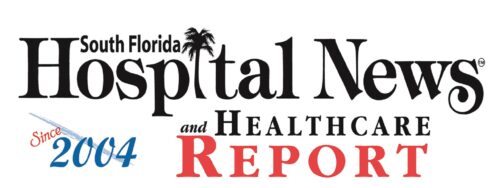By Daniel Casciato
South Florida-based Marc Egort, CPA, P.A., was among the first statewide accounting firms to develop a portion of its practice dedicated to serving the cannabis industry. Founded in 1999, by its namesake, Marc Egort, the dedicated professionals at the firm had already been working closely with clients to provide core accounting services, tax compliance, and business consulting in various industries nationwide.

Marc Egort, CPA
The boutique CPA firm expanded its business four years ago to provide accounting services to cannabis businesses, not just across the state, but across the nation as well. It offers a broad spectrum of accounting, financial reporting, tax compliance, and consulting services that give cannabis businesses the insight they need to grow and succeed.
“I got involved with the cannabis industry for several reasons,” explains Egort. “My personal belief is that cannabis has a lot to offer for medicinal and health purposes. I also have a strong belief that there should be no incarceration for those who are users of cannabis. We’re missing out on a population of productive income-producing individuals who have not done anything other than use cannabis, which is available via nature.”
Egort also has a strong opinion about the medical value of cannabis.
“There are other progressive countries out in this world that are doing tremendous amounts of research and medical advancement and using cannabis for treatments for cancer or degenerative diseases such as Parkinson’s Disease, which my father was afflicted with,” he says. “There’s leading, cutting-edge research happening in the cannabis field right now, but I feel the United States is woefully behind in that arena.”
One of the reasons the nation is behind is due to the fact that cannabis remains illegal on the federal level. That makes cannabis accounting more challenging.
“Cannabis is unique because it’s considered to be—and is labeled—as a Schedule I narcotic in the United States,” Egort says. “Since it is a federally illegal activity, it makes that unique from an accounting or more importantly, from a tax standpoint. There are extreme limitations on what a business owner can use as deductions against the income earned from distributing or selling cannabis, whether it’s medicinal or recreational.”
The challenges that consultants or tax advisors such as Egort have is to help those members of the industry navigate the restrictions on what they can deduct against that. Even though, it’s federally illegal, it falls under a certain classification. While IRS Code Section 280E is clear that all the deductions and credits are not allowed for an illegal business, there is a caveat cannabis businesses are aware of: marijuana business owners can deduct their cost of goods sold, which is basically the cost of their inventory. This means they still must report the income. They don’t have the same flexibility or liberties that businesses who are not operating under the pretense have as far as what they can deduct against that income. Therefore, their taxes are significantly higher than other industries.
While other tax consultants and accounting practices are now offering services to cannabis businesses, Egort feels he has one great advantage over the others.
“We’re a smaller, boutique firm with seven total employees, so we don’t have the distractions of a larger firm where it’s multilayered and multilevel,” he says. “As a result, we’re able to provide a unique perspective with the same level of expertise but with greater attention and focus for our clients. Our clients will never feel like they’re getting bounced around from one professional to another. We all share the same level of expertise and resources. You’re getting high value no matter who you work with in our office.”
Whether you work with Egort’s practice or any other firm, Egort offers this accounting advice:
“Always ask good questions and surround yourself with really good professionals who are embedded in the industry,” he notes. “Those are the people who will have access to resources specific to the industry, no matter what industry it is, whether it’s cannabis or anything else in healthcare. Also, be sure to listen, be open minded, and have a positive attitude about compliance. Understand that your business advisors, whether they are lawyers, accountants or other business consultants, are all in your corner and are looking to help you become successful and to navigate a very highly regulated, challenging, and often misunderstood, industry.”
Finally, he stresses the importance of working with professionals who you are comfortable working with. For example, do the communication styles match? Is there easy access to the professional—are they readily available?
“You should really decide what’s important to you in the professionals you choose to work with,” he says. “The knowledge base about a subject area is similar for every professional. So, you should decide what’s important to you for a working relationship. The relationship is ultimately what matters. Cannabis is a relationship-driven business. That’s where the value is.”
For more information, visit www.egortcpa.com.








